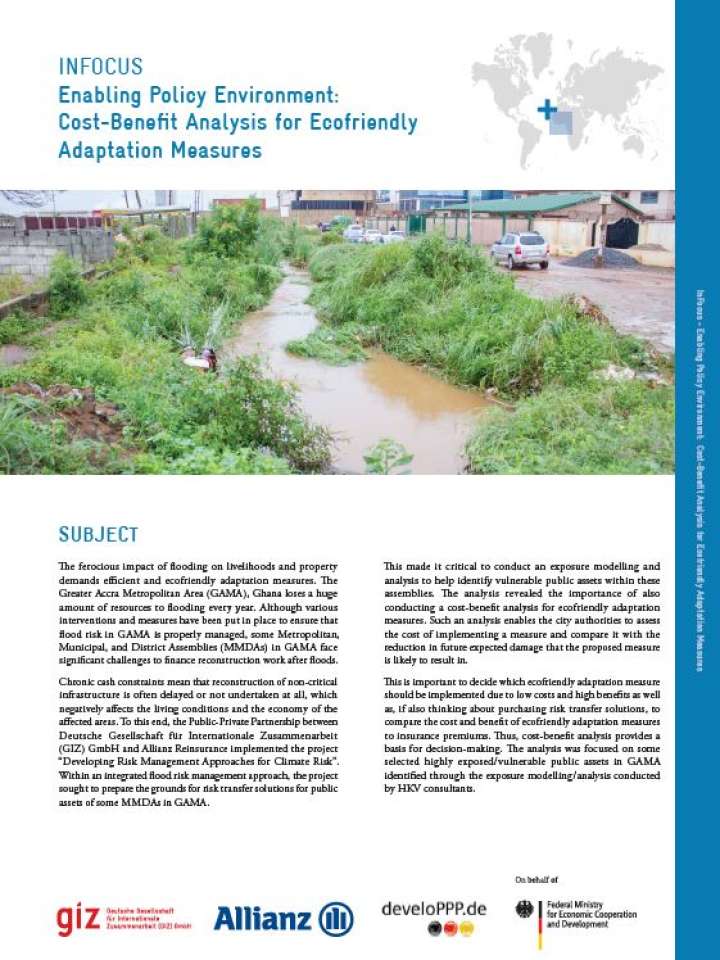Enabling policy environment: cost-benefit analysis for ecofriendly adaptation measures
Within the project "Developing Risk Management Approaches for Climate Risks" the Strategic Partnership between the Deutsche Gesellschaft für Internationale Zusammenarbeit (GIZ) and Allianz Reinsurance prepared the ground for introducing flood risk transfer solutions for public assets within an Integrated Disaster Risk Management (IDRM) approach for three municipalities in Ghana. This InFocus document outlines the role of cost-benefit analyses of adaptation measures as an essential step in the prevention phase of this IDRM approach.
Although various interventions and measures have been put in place to ensure that flood risk is properly managed, some municipalities in Ghana still face significant challenges to finance reconstruction work after floods. Chronic cash constraints mean that reconstruction of non-critical infrastructure is often delayed or not undertaken at all, which negatively affects the living conditions and the economy of the affected areas.
Thus, it is critical to implement cost-effective adaptation measures for public assets before a disaster actually strikes in order to reduce flood risk, resulting damage as well as direct and indirect reconstruction costs. Cost-benefit analyses in this vein enable the city authorities to assess the cost of implementing an adaptation measure and compare it with the reduction in future expected damage that the proposed measure is likely to result in. This InFocus document outlines how cost-benefit analyses conducted for various public assets can contribute to informed decisions and promote eco-friendly adaptation measures that have attractive cost-benefit ratios.
Explore further
